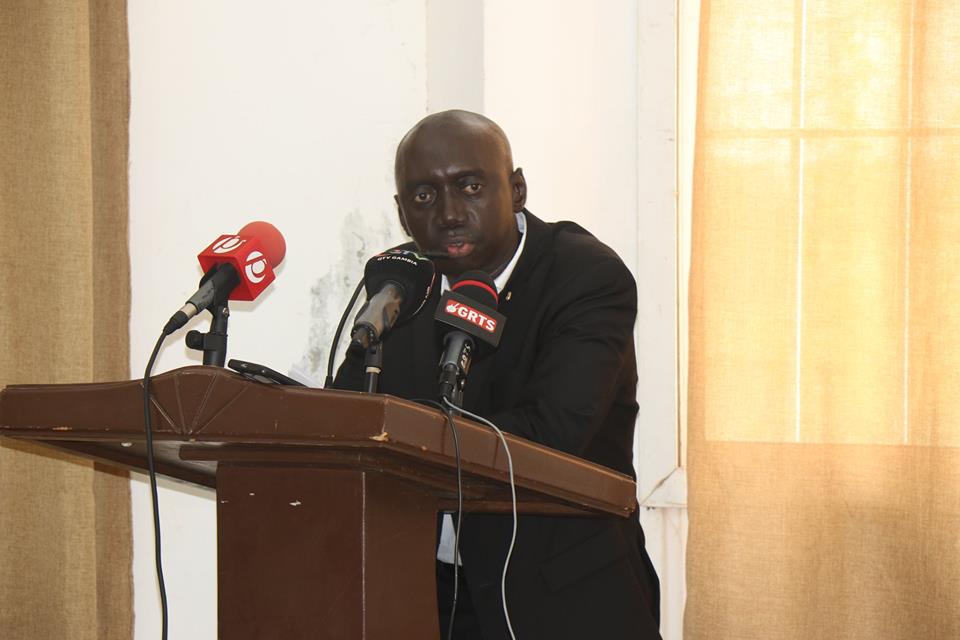By: Malanding Darboe
The Director General of the Gambia Immigration Department (GID), Bai Ebrima Mboob, has said the GID will not relent in its effort to bring its services in close proximity to the population.
The GID is on the verge of decentralizing passport issuance across all the administrative regions of The Gambia after expanding the processing of ID cards by opening enrolment centres in all the administrative capitals: Brikama, Janjanbureh, Kerewan, Basse, and other areas accessible to the populace.
“When it comes to passports, particularly the ECOWAS biometric passport, the GID is committed to expanding this processing on mobile enrolment from Kerewan administrative area to Basse and Soma, to Sibanor and probably Kaur. The idea behind this is cognizant of the hardship that people encounter in accessing a passport because everything was centralized in Banjul. This is part of our reform initiative. The government is quite supportive in seeing that people don’t suffer to acquire documents,” DG Mboob said in an interview with The Voice on Thursday.
DG Mboob explained that the GID officers continue to burn the midnight oil to enhance the department’s operational efficiency.
“The GID officers are working odd hours to improve the efficiency of service delivery,” he added.
According to him, the department is just whispers away from attaining the goals it set for itself in its 2019-2024 Strategic Plan.
“We can say 75% of our goals have been achieved. One of the success stories is the implementation of the IOM-funded project on the three borders: Giboro, Amdallai, and Farafenni. This is a mega project in millions of dollars. We are talking again about how DCAF is strengthening the efficiency and accountability of the Gambia Immigration Department. We have revised the Immigration Act, and we are now awaiting the National Assembly’s enactment. When I say 75% success rate, I can substantiate it because these are major projects, very costly, and the financial burden of their implementation would have solely rested on the shoulders of the Government. You can see, they have been funded by our bilateral partners,” said Mboob. “If you look inwards as to what we have done, such as processing, digitization, the Securiport at the airport, and biometrics, you will realize that we have gone very far. When you compare five years ago and today, we have indeed gone too far. You will now see that we have fenced our proposed HQ in Kanifing. We have six proposed sites to inaugurate. We are cognizant of building offices that comply with minimum standards. There is a big improvement when it comes to the actualization of each of the goals.”
He thanked the Gambian leader, Government of The Gambia and partners for accompanying the GID in its reforms journey.
“I am very thankful to the President of the Republic for addressing key action points affecting the GID. I also want to express appreciation to the Government and our partners for supporting our reform process. I want to first of all thank the Government for creating that enabling environment for the GID to pursue and realize its goals. I also want to thank our German partners. Germans have been and are still there for us, you can see how our uniforms are thanks to the Germans. Swiss is also very supportive of us in terms of capacity-building. I would say a big thank you to Italy because, as we speak, we are distributing our 50 computers, recently donated to us by Italy. We would also thank Italy for the 40 vehicles it donated to us in 2017 to facilitate enforcement. We are indeed very grateful to Jah Oil for fueling our vehicles for the enforcement of immigration laws. We would like to thank the office of the NSA and the SIS, the tourism minister Abdoulie Jobe, for playing a key role in the approval of the visa policy,” stated DG Mboob.




